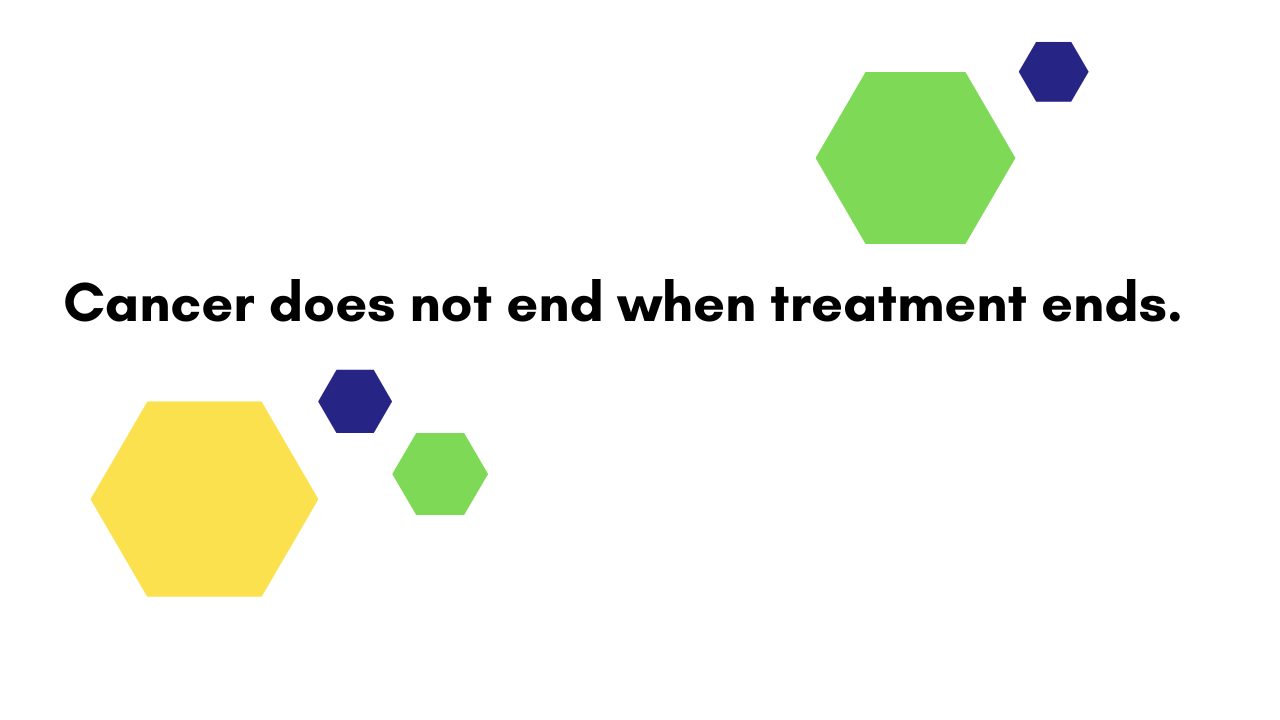Childhood Cancer Survivorship is its Own Emotional Journey
By Allie Neenan, PhD, LP | Last updated 2/16/25

Many people expect the end of cancer treatment to come with relief, celebration, and closure. Unfortunately, this does not represent the whole picture. It is true that finishing treatment is a major milestone. The hope is always that the cancer will stay away, and families will be able to heal. There are also many emotional challenges during cancer survivorship, and a lot of people are not aware of them.
What are some of these challenges?
Loss of Control
During cancer treatment, children and families are very active in their efforts to treat a child's disease. Oral medications, injections and infusions, surgeries, and endless other appointments take over everyone's daily routine. These treatments are exhausting and painful. They also represent the "fight" against cancer - one of the few things that families have power over. While no one can control how a child responds to treatment, they can control the choice to take each medication and attend each appointment. Once treatment is over, that fight is no longer active. Although there are steps families can take to be healthy, there is no known way to prevent relapse. The transition from working around the clock to "watching and waiting" can be very stressful.
Fear of Recurrence
Children are usually not considered "cured" until at least five years after treatment is over. This is because many of the cancers children get have a high rate of recurrence, or relapse. Cancer is most likely to relapse sooner after treatment ends, but it is always a possibility. The signs of relapse can be hard to detect. When fear of cancer recurrence is very intense, every ache and bruise can seem like a sign that the cancer is back.
Survivor Guilt
The term "survivor guilt" refers to feelings of shame or unworthiness about escaping a bad situation that someone else experienced. Nearly 2,000 children lose their lives to cancer each year in the United States alone. In many ways, it is a matter of luck whether a given child will survive or not. This situation can lead to a lot of confusion, as well as survivor guilt.
Survivor guilt can impact any member of the family. Diagnosed children may feel guilt when they see other children suffering or if a friend dies from cancer. Parents and siblings may also struggle with survivor guilt. It is very difficult to watch a loved one suffer from cancer treatment. Many family members find themselves wondering why the child with cancer had to feel so much pain, or they wish that it was them instead.
Changed Identity
Childhood cancer is a life-changing diagnosis. It can challenge a person's beliefs, and it is hard to rely on others for help. Treatment takes a long time, and it is easy to forget about life before cancer. Side effects can also prevent children from returning to their favorite hobbies, and they may have to rebuild their sense of self.
How to Help
If you assumed that ending cancer treatment comes with only positive emotions, you are not alone. Many people are unaware of the long term challenges. Because of this, a lot of families lack the support they need in survivorship. You can help by simply listening. Every family is different, and it is ok to ask what would be most helpful during the transition from treatment to survivorship. When communities continue to honor the unique journey of survivorship, children not only survive, but thrive.
All content on Cancer Cushion is provided for informational purposes only. Individuals experiencing a mental health emergency should contact their local crisis line or dial 988.
Read other blog posts here!
Copyright Cancer Cushion PLLC. The materials on this site do not constitute or replace therapy or mental health services and are provided for educational purposes only.
Privacy Policy | Terms and Conditions